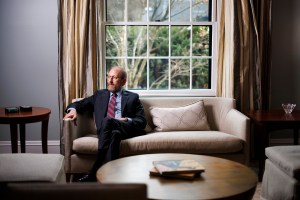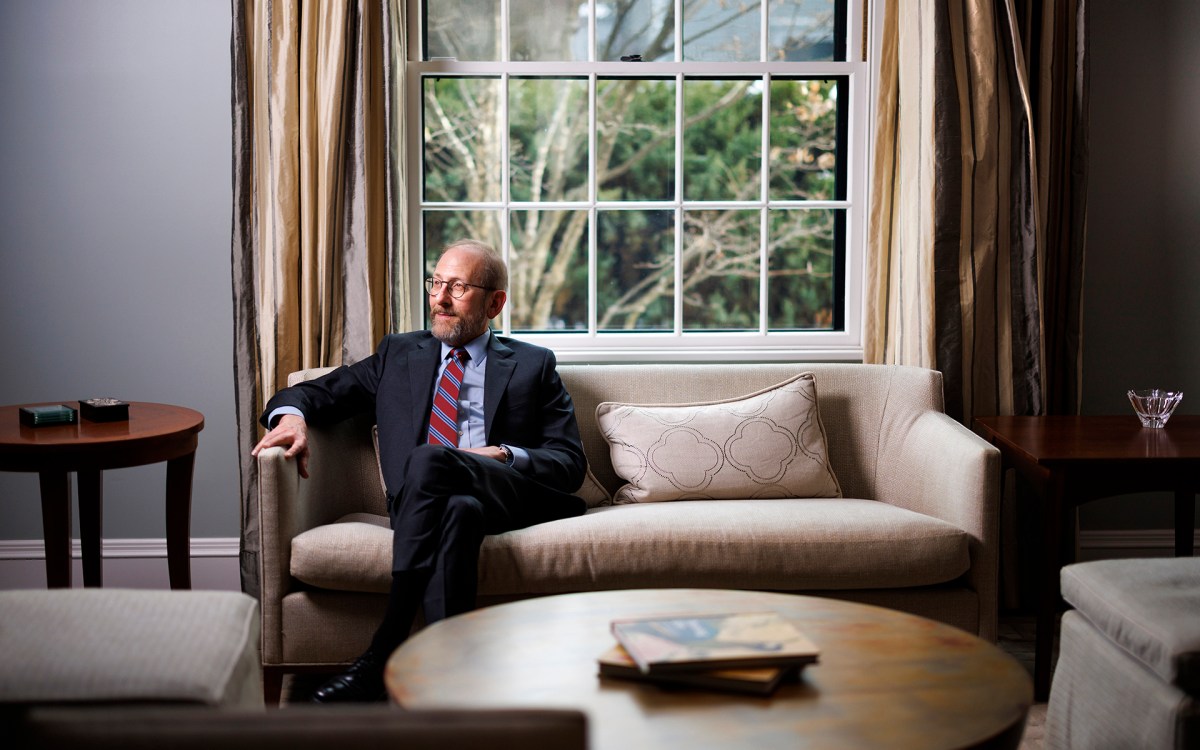
A portion of the new funding fostered programs that began this summer, including the Clanwilliam Living Landscape Project in South Africa, where Anna Lockwood of the New York University student program observed rock art (photo 1). Elizabeth Pike of Harvard College was at the Drimolen archaeological site as part of a tour (photo 2). South African scholar David Bunn taught students about the history of Kruger National Park and the creation of the African landscape at the park’s Satara Camp (photo 3).
Photos by Christina Tsai and Maggie Lopes
A boost to international learning
President’s fund backs myriad efforts, from Rwandan health care to German film studies
Setting up a Harvard program overseas is no mean feat. It requires air travel to meet collaborators, scout locations, and ensure that students have opportunities to interact with local people. It also demands consideration of potential risks in sending students to unfamiliar places.
The President’s Innovation Fund for International Experiences (PIFIE) was established to help faculty members meet those challenges, with the aim of fostering and expanding the international offerings available to Harvard students.
The fund, established as part of David Rockefeller’s $100 million gift in 2008 to foster undergraduate experience abroad, provides support for faculty members to create meaningful international programs. It offers grants of between $5,000 and $60,000 for exploratory or site planning visits, to develop or implement a new international program, or to provide renewal funding for past applicants.
“Extended periods abroad have given our students new insights and directions in their academic careers and expanded the ways in which their future professional lives take form,” said Harvard College interim Dean Donald Pfister. “The innovation funds have [also] provided a means by which faculty can examine their fields in new ways with undergraduates.”
This year’s awards include renewal funding for one program, extension funding for two, and seed funding for four new programs. The renewal was for a program that History Professor Caroline Elkins is developing in Tanzania and that had been switched from Mombasa, Kenya. The two extension grants went to Alain Viel, a senior lecturer in molecular and cellular biology, for a program in Shanghai, and to David Cutler, Otto Eckstein Professor of Applied Economics, and Paul Farmer, Kolokotrones University Professor of Global Health and Social Medicine, for a global health program in Rwanda.
The new funding, some of which fostered programs that began this summer, includes work on filmmaking in Berlin, history and society in South Africa, language and culture in Paris, and a global partnership in engineering with Hong Kong University of Science and Technology.
Evelyn Hu, Tarr-Coyne Professor of Applied Physics and of Electrical Engineering, is working in partnership with the Hong Kong University of Science and Technology to give students an opportunity to experience engineering innovation in a team-based, global context. Hu said the funding allowed her to travel to Hong Kong to discuss details of the program in person with collaborators, which is critical to creating a shared understanding of how best to craft the program.
“The PIFIE was important in so many ways. The existence of the program raises consciousness about Harvard’s interest in promoting new kinds of collaborative international experiences,” Hu said. “The seed funding helps to make possible those important first steps in putting a program together, and also sends an important message to our partner institution about the depth of commitment that Harvard has in realizing such new programs.”
For John and Jean Comaroff, professors of African and African American Studies and of anthropology, the funding was critical in their efforts to create a meaningful, but also complex, program that was offered to Harvard students for the first time this summer.
The program requires residences in two cities in South Africa, Cape Town and Johannesburg, a teaching safari through a game park the size of Israel, stays in a remote African chiefdom, where students live in different villages in homes without electricity or running water, as well as several short field trips.
“Quite simply, we could not have set it up without that fund money,” Jean Comaroff said. “Setting up the arrangements in each place, equipping the staff and students for the field trips, putting in place security protections, and many other things besides required a great deal of preparatory work and considerable expense, all of which was covered by the fund.”
For Eric Rentschler, the Arthur Kingsley Porter Professor of Germanic Languages and Literatures, Berlin is a seminal place to understand modernity and modern history. Rentschler used the funds to create a film study program in Berlin that has students learning the city’s history, analyzing some 20 films featuring the city, interacting with members of the German Film and Television Academy Berlin, and making their own films about the city.
Berlin “remains, to this day and for many reasons, a remarkable metropolis that reflects the workings of history in a plethora of different guises,” Rentschler said.
Virginie Greene, chair of the Department of Romance Languages and Literatures, and her colleagues have taught an eight-week summer program in Paris for several years. They are hoping to offer a term-time program to extend the summer experience and to allow further research projects and immersion.
“Paris is still the first, or one of the first, destinations for Harvard students going abroad,” Greene said. “There has been a long love affair between Americans and Paris for quite a while, and students … may also appreciate the fact that this very old city is today as cosmopolitan as New York, but in a French way.”




